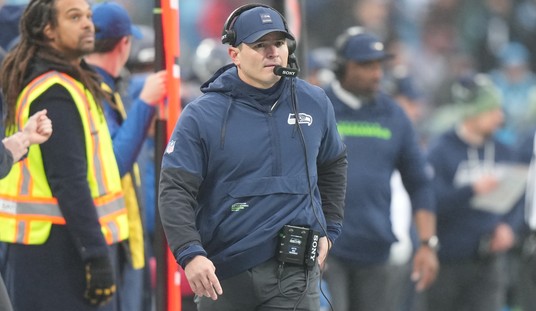The Obama administration received a sharp rebuke on its drive to forge a Middle East peace process when President Mahmoud Abbas applied for Palestinian state membership in 15 international organizations.
Secretary of State John Kerry was supposed to meet with Abbas in Ramallah on Wednesday, but that was abruptly called off.
“I’ve heard a rumor about, a quote not being invited sort of, but I’m not sure I’m going, regardless of that, whether or not we have certain things that we’re trying to figure out in terms of the logistics on the ground and what is possible,” Kerry said Tuesday at NATO before confirmation that the trip wouldn’t be happening.
The administration has been pushing for a framework agreement by April 29, which would extend the talks into 2015. The Palestinians complained that Israel wasn’t releasing prisoners on time and complained about construction in the West Bank.
The White House has been considering releasing Jonathan Pollard, a U.S. citizen sentenced to life behind bars in 1987 for spying for Israel, in an attempt to butter up Israeli Prime Minister Benjamin Netanyahu to accept Obama and Kerry’s proposal.
“I continue to believe that releasing Jonathan Pollard is the right thing to do,” Sen. John McCain (R-Ariz.) said. “However, releasing Mr. Pollard simply to keep Israeli-Palestinian talks going is totally misguided and would be seen as a desperate attempt to avert failure.”
Kerry swore, though, that even Abbas’ move in clear defiance of U.S. demands doesn’t mean failure.
“It is completely premature tonight to draw any kind of judgment, certainly any final judgment, about today’s events and where things are,” he said. “This is a moment to be really clear-eyed and sober about this process. It is difficult, it is emotional, it requires huge decisions, some of them with great political difficulty, all of which need to come together simultaneously.”
“And all I can tell you is that we are continuing, even now as I am standing up here speaking, to be engaged with both parties to find the best way forward. We’ve been in touch with the White House and Washington during the day, as well as all of the parties. And I’ve talked to many people on the ground in the region, and I will continue to even tonight.”
Kerry urged “both sides to show restraint” while a “team is on the ground” to work with both sides.
Abbas has said for nine months that he would set aside his pushes for statehood during negotiations, but instead he went on live Palestinian television to sign the applications for recognition by the agencies, including ones dealing with women’s rights and the Geneva and Vienna Conventions, a Palestinian official told the New York Times.
“We don’t want to collide with the U.S. administration. We want a good relationship with Washington because it helped us and exerted huge efforts. But because we did not find ways for solution, this becomes our right,” Abbas said.
At NATO, Kerry waxed that “it’s moments like this when we all need to remember exactly what brought us to this effort in the first place, what the goal is, and where everybody wants to end up.”
“I know that President Abbas in his comments made it clear that he intends to continue to work, even tonight, on this process that we are engaged in,” he said, adding in apparent reference to both Pollard and the Palestinian prisoners that “at this point in time, no agreement has been reached with respect to any prisoner.”
In fact, Kerry was insistent that Abbas hadn’t breached any part of the negotiations agreement because he wasn’t seeking UN recognition. “None of the agencies that President Abbas signed tonight involve the UN. None of them,” he said.
“And President Abbas has given his word to me that he will keep his agreement and that he intends to negotiate through the end of the month of April,” he added.
However, in the words of Abbas: “The Palestinian leadership has unanimously approved a decision to seek membership of 15 UN agencies and international treaties, beginning with the Fourth Geneva Convention.”
Palestinians were up in arms that Israel didn’t release a fourth batch of prisoners on March 29. “I’m not going to get into the who, why, what, when, where, how of why we’re where we are today. We’re where we are today – and the important thing is to keep the process moving and find a way to see whether the parties are prepared to move forward. In the end, this is up to the parties,” Kerry continued.
“…President Obama has been as committed to this as anybody. He has committed his personal time. He has committed my time. The President is desirous of trying to see how we can make our best efforts in order to find a way to facilitate. But facilitation is only as good as the willingness of leaders to actually make decisions when they’re put in front of them.”









Join the conversation as a VIP Member